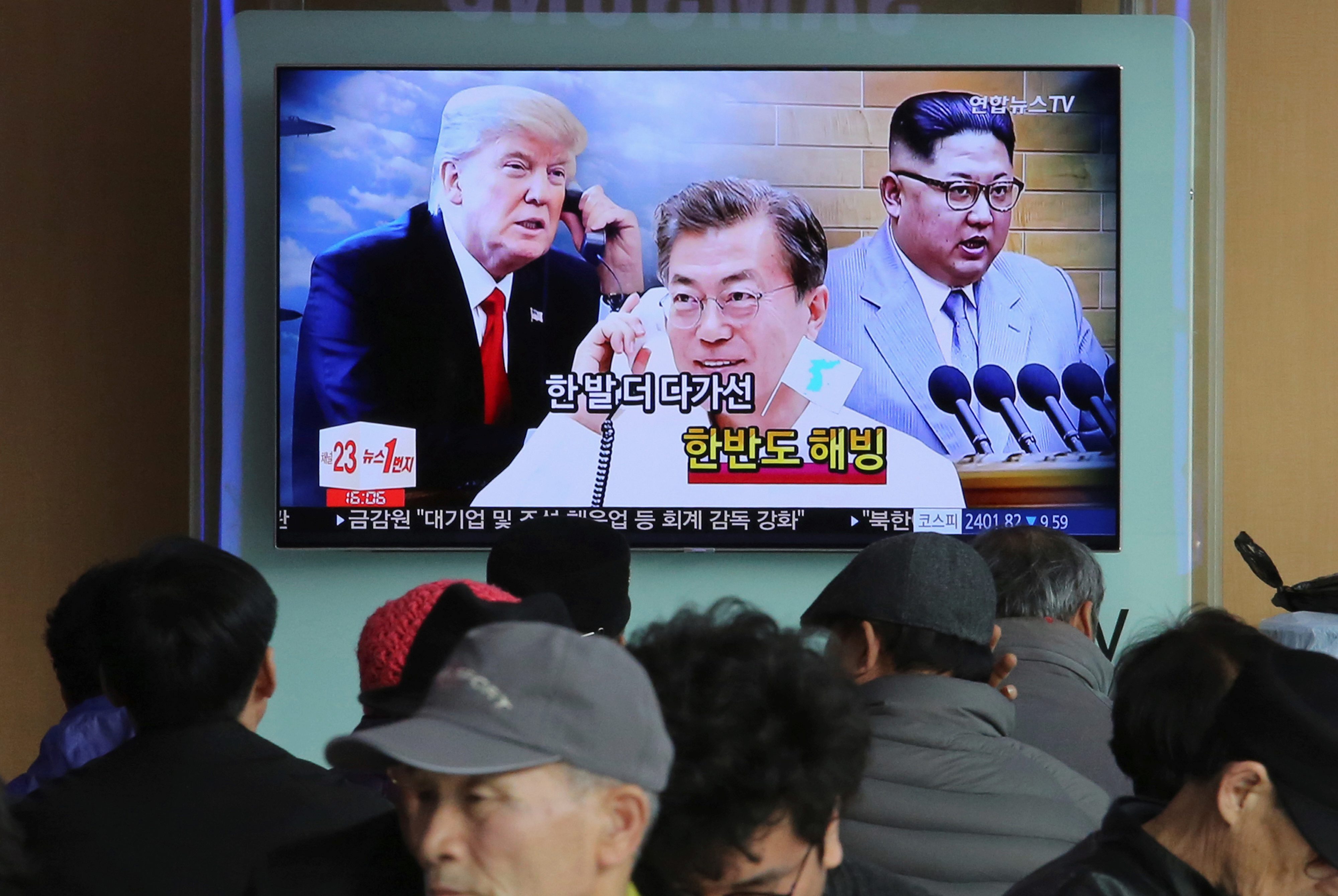
President Trump praised China for helping drive North Korean leader Kim Jong Un’s toward potential denuclearization talks with Washington, but a cautious Beijing has barely even reacted to reports thi
President Trump praised China for helping drive North Korean leader Kim Jong Un’s toward potential denuclearization talks with Washington, but a cautious Beijing has barely even reacted to reports this week that Mr. Kim is offering to halt all nuclear and missile tests while such negotiations play out.
Despite its status as the North’s ally and main link to the outside world, the Chinese government has not made an official statement on the claim by South Korean officials that Mr. Kim made the offer during talks with them this week, and the newspaper of the ruling Communist party even questioned whether the offer really happened.
“North Korea still has not confirmed the South’s version of events,” stated an editorial in the Global Times, noting that Pyongyang’s own official state newspaper, the Rodong Sinmun, had said Pyongyang’s actual plan is to proceed with the “advance” of the nation’s “nuclear weaponry.”
U.S. officials said the editorials underscored ongoing “puzzlement” inside the White House over the true nature of the offer South Korean officials claim Mr. Kim made with regard to missile and nuclear tests.
South Korean President Moon Jae-in’s office said in a statement Tuesday the North in direct talks had expressed a “willingness to hold a heartfelt dialogue with the United States on the issues of denuclearization” and “made it clear that while dialogue is continuing, it will not attempt any strategic provocations, such as nuclear and ballistic missile tests.”
But Mr. Moon on Wednesday tried to tamp down expectations for the detente and ease fears that the talks could separate Seoul from Washington and other allies urging a hard line on the North’s nuclear and missile programs. He noted many of the sanctions of the North were imposed by the U.S. or through the United Nations, and would only be eased by “substantive progress” on denuclearization.
“These international efforts cannot be loosened by inter-Korean dialogue,” Mr. Moon told a meeting of South Korean party leaders in Seoul. “We don’t aim for that to happen and it’s also impossible.”
The issue, according to Michael Pillsbury, a Mandarin-speaking Pentagon consultant and head of Chinese strategy at the Hudson Institute in Washington, is that “that there seems to be no direct message from North Korea to the U.S. government.”
“This is all being filtered through the South Korean government,” Mr. Pillsbury said, adding that Chinese officials, who are generally regarded as having better sources on the inner workings of the Pyongyang regime, are still unsure about what is on the table.
According to the Global Times editorial, the Chinese government so far “does not see a major shift in North Korea’s negotiating position,” said Mr. Pillsbury, who warned in an interview that “there is often a price to pay just to learn that North Korea has not made any real concessions.”
Joseph DeTrani, a former CIA official who served as the State Department’s special envoy to the North Korean talks that broke down in 2009, said the Chinese have appeared to be “as surprised as everyone else” about South Korea’s claim that Mr. Kim has offered to halt tests and discuss denuclearization with Washington.
“We’ve got to sit down with the North Koreans and not have anything go through filters,” said Mr. DeTrani. “It’s got to be direct so we can figure out what’s going on, what does Kim Jong Un want, and does he know what he’s doing?”
President Trump has expressed guarded optimism about the prospect for such talks, but it’s not clear when and whether the talks will occur. South Korean officials said they hope details could take shape during a direct meeting slated for late-April between the North and South Korean presidents.
Some analysts say Beijing is poised to claim credit for any future progress on U.S.-North Korea talks and may even seek concessions from Washington in exchange for influencing the regime in Pyongyang. The North Korean offer came at the same time Mr. Trump was putting the finishing touches on steel and aluminum tariffs that administration officials were primarily sparked by massive Chinese overproduction and dumping abroad.
Patrick Cronin, who heads the Asia-Pacific Security Program at the Center for a New American Security in Washington, said Tuesday that if the talks turn out to be successful, “China will then be seeking to extract favors and take credit for it.”
“The Chinese are all over us on this,” Mr. Cronin said, asserting that Beijing will want concessions from Washington “on trade” relating to everything from “solar panels to aluminum and steel.”
• Seth McLaughlin contributed to this article.






